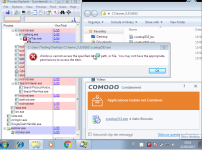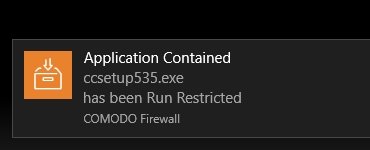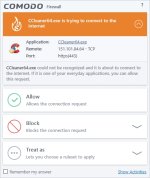- Jul 22, 2014
- 2,525
- 1
- 23,394
- 3,488
I knew it, they didn't just "watch" ...and for 1 month ..
CCleaner Hack Carried Out In Order to Target Big Tech Companies
....
Attackers targeted a who's who list of tech companies
Cisco Talos says attackers targeted victims based on their computer's domain name. Ironic
ally, the attackers targeted Cisco itself, along with other organizations such as Singtel, HTC, Samsung, Sony, Gauselmann, Intel, VMWare, O2, Vodafone, Linksys, Epson, MSI, Akamai, DLink, Oracle (Dyn), and even the almighty Microsoft and Google (Gmail).
....
The first table contained data on over 700,000 computers, while the second on 20 — after removing duplicates. Both tables stored entries dated between September 12 and September 16.
....
"It appears the data prior to Sept 12 was erased.
....
Researchers also point out that because of the incomplete C&C server data and because attackers downloaded a silent second-stage downloader, users who ran the tainted versions of CCleaner should wipe clean or restore from backups made before August 15, when the two CCleaner tainted versions were released. The previous advice to deal with the malware was to only update the CCleaner apps.
...
CCleaner Hack Carried Out In Order to Target Big Tech Companies
....
Attackers targeted a who's who list of tech companies
Cisco Talos says attackers targeted victims based on their computer's domain name. Ironic
ally, the attackers targeted Cisco itself, along with other organizations such as Singtel, HTC, Samsung, Sony, Gauselmann, Intel, VMWare, O2, Vodafone, Linksys, Epson, MSI, Akamai, DLink, Oracle (Dyn), and even the almighty Microsoft and Google (Gmail).
....
The first table contained data on over 700,000 computers, while the second on 20 — after removing duplicates. Both tables stored entries dated between September 12 and September 16.
....
"It appears the data prior to Sept 12 was erased.
....
Researchers also point out that because of the incomplete C&C server data and because attackers downloaded a silent second-stage downloader, users who ran the tainted versions of CCleaner should wipe clean or restore from backups made before August 15, when the two CCleaner tainted versions were released. The previous advice to deal with the malware was to only update the CCleaner apps.
...
Last edited:


